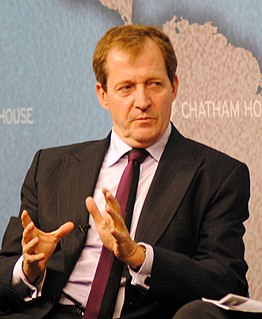A Quote by Mitch Hedberg
If you have to release bad news to the public, it would help if you are not ugly.
Related Quotes
It is much, much worse to receive bad news through the written word than by somebody simply telling you, and I’m sure you understand why. When somebody simply tells you bad news, you hear it once, and that’s the end of it. But when bad news is written down, whether in a letter or a newspaper or on your arm in felt tip pen, each time you read it, you feel as if you are receiving the bad news again and again.
For a long period of time, the media covered rap music and hip hop the same way they cover a lot of black people, people of color, you know, the bad news happens to be news. They used to have these little stupid colloquialisms that pop up like, "You know what? No news is bad news!" They trick the masses into thinking that any news is great for you. And I just think that's a piece of crap.
Good news is not news. Bad news sells. Confrontation sells. And that's what the press is always looking for. I'm not bragging, but I have the highest job-approval rating of any public official in the city. And I've had it consistently. The approval rating for the police department is 70 percent. This notion that stop-and-frisk has torn the community apart is false.

































